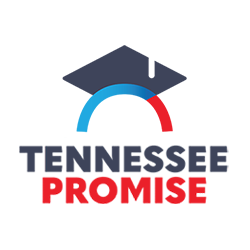 The John B. Wallace Health Sciences Division offers degree and certificate programs that are designed to prepare students for a career in specific healthcare occupations. The programs range from one semester to two academic years (3 to 24 months) in length.
The John B. Wallace Health Sciences Division offers degree and certificate programs that are designed to prepare students for a career in specific healthcare occupations. The programs range from one semester to two academic years (3 to 24 months) in length.
Admissions Requirements
The number of students admitted to each of the Health Sciences Career Education Programs is limited and the admission process is competitive. There are usually more applicants than spaces available. The number of applicants admitted to each Health Sciences program is limited by several factors including: the number of spaces available for clinical training, the predicted number of positions available in the health care industry for graduates, and enrollment limitations imposed by accreditation agencies. Admission to each of the programs is based on several factors including successful completion of the admission requirements and interviews with an admissions committee of professionals in the appropriate field.
Those who desire admission into any Health Sciences Degree/Certificate program must:
- Submit the following to the Office of Admissions and Records
- Application to the College meeting admission requirements for the College based on the admission or readmission status the applicant is seeking.
- ACT or SAT scores if under 21 years of age
- All high school transcripts or high school equivalency scores
- Transcripts from other colleges attended
- Appropriate Placement Test results (if applicable)
- Apply to the specific Health Sciences Career after being admitted into the College
- Application deadlines for the Health Sciences programs vary.
- For information about a specific program's application process and deadline, review the applicable Information Packet or contact the program director.
The Health Sciences Degree/Certificate programs are academic programs of study which require completion of certain clinical or practicum experiences in order to successfully complete the academic program. The College’s clinical or practicum site partners require students to undergo criminal background checks, drug screens, or to provide proof regarding vaccination history and/or provide other information to participate in clinical or practicum experiences at their sites. Failure to meet the requirements of the College’s clinical or practicum site partners may inhibit successful completion of the clinical or practicum component and prevent completion of the program.
Prospective students must also follow program-specific directions for the desired Health Sciences Degree/Certificate, which may include (but are not limited to):
- Complete a VSCC medical history report
- Document proof of medical insurance
- Complete student background check(s)
- Complete drug screen(s)
- Obtain specific vaccinations/immunizations or medical tests
Criminal Background Check
All students will be required to complete a criminal background check upon formal acceptance into a Health Sciences program. The results of the background check will be forwarded to the administrative staff at Vol State. Please review our Background Check Requirements and steps on how to get your results submitted. More than one background check may be required.
Drug Screening
Students seeking enrollment in the Health Sciences Programs requiring participation in clinical training in area hospitals and related clinics must provide evidence of having passed a 10-panel urine drug screen prior to participating in clinical or practicum experiences. Find out more information about the screening procedures and locations. More than one drug screen may be required.
Vaccinations, Immunizations, and Medical Tests
All students are required to complete and provide documentation of various types of vaccinations, immunizations, and medical tests in order to fully participate in clinical or practicum experiences. These may include, but are not limited to, tuberculin (TB) skin tests, Hepatitis B, varicella, influenza, and COVID-19 vaccinations. Refer to the desired program of study for specific details.
Professional Advancement
The Division also offers a variety of professional advancement opportunities beyond degree/certificate programs. These include training in Coding/Reimbursement and Advanced Practitioner in Respiratory Care.
Advising Information
Since the Health Sciences programs do not follow the standard academic calendar, it is recommended that you attend an open advising session or call/email the appropriate program personnel. It is also recommended that you read over the information that is posted for the program(s) that you are applying for.
Time & Financial Requirements
Health Sciences Career programs include coursework in the clinical setting which requires that students be available during clinical hours often totaling up to 40 hours per week. It is usually not possible to participate in the professional portion of most of the Health Sciences Career programs on a part-time basis. Clinical assignments are during periods appropriate to the professions and may include day, evening, and weekend hours. Expenses related to assigned clinical courses such as medical exams, liability insurance, medical insurance, uniforms, meals, travel, and other items specific to each career area should be expected. All of these expenses are the student's responsibility.
Only students who have been screened and admitted into the programs of study in Health Sciences will be permitted to register for professional-level courses in each discipline.



